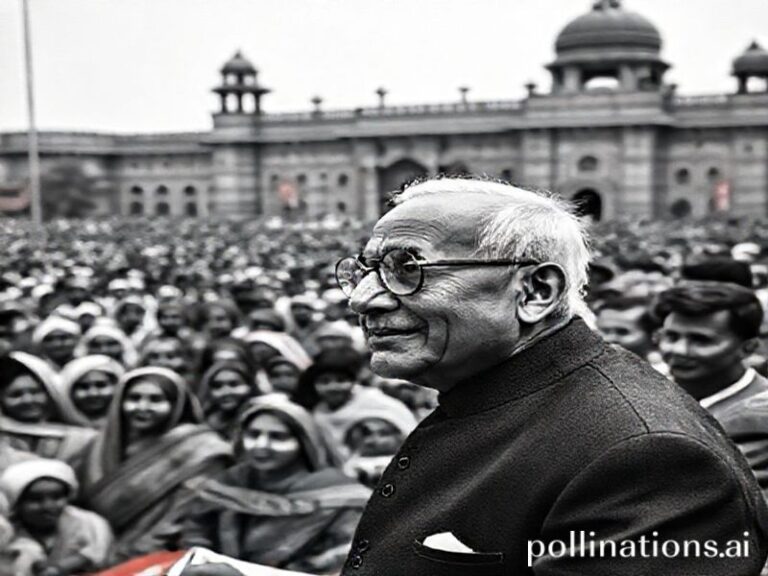Tigres-León 2-2: How a Mexican Football Derby Became the World’s Most Entertaining Supply-Chain Crisis
Tigres—León: The Derby That Explains Why the World Can’t Have Nice Things
By Our Correspondent, Still Recovering from Airport Tequila
MONTERREY, NUEVO LEÓN—If you watched the Tigres–León clash last weekend strictly for the football, congratulations on your adorable naïveté. The rest of us—jaded foreign hacks, commodity traders glued to Bloomberg, and European scouts praying Mexico still produces cheap talent—saw a 2-2 draw that doubled as a geopolitical mood ring. On one touchline: Tigres, the Amazon Prime of Latin American sport, bankrolled by a billionaire whose conglomerate also sells the cement used to build the U.S. border wall (irony is clearly included at no extra charge). On the other: León, owned by a Brazilian conglomerate that also peddles pork bellies and, occasionally, democracy coupons back home. Somewhere in between, a ball rolled, a ref swallowed his whistle, and the global south reminded us that even our weekend escapism now comes with supply-chain disruptions.
The match itself was a Rorschach test. Tigres’ French striker, André-Pierre Gignac, scored a bicycle kick so picturesque it could be hung in the Louvre—right next to the Greek bankruptcy documents. León’s Ecuadorian winger, Ángel Mena, equalized late, ensuring broadcasters from Quito to Qatar kept their ad rates pegged to “nail-biter.” Viewership spiked 38 % outside Mexico, largely because the game aired during that sweet spot when Europeans are drunk enough to watch anything but sober enough to still feel superior about it.
But the numbers only whisper the larger plot. Consider the fertilizer. Earlier this year Cemex—yes, Tigres’ benevolent cement daddy—warned that urea shortages could stall Mexican agriculture. Turns out the same stuff that grows your avocados also grows the grass at Estadio Universitario. So while midfielders exchanged possession, the price of agrochemicals danced to the tune of a war in Ukraine that none of the players voted for. Every sliding tackle was, in effect, subsidized by the same commodity shock raising your breakfast toast. Sports writers call this “the narrative”; economists call it “inflation’s halftime show.”
Then there’s the soft-power scorecard. Washington keeps begging Mexico to near-shore microchips; Beijing keeps shipping quasi-legal streaming boxes so fans can watch Tigres free of pesky IP law. The match was simultaneously broadcast on Fox Sports (paywall) and a pirate app whose splash screen features Winnie-the-Pooh flipping the bird—an image that, in 2023, counts as diplomatic correspondence. Somewhere in the U.S. State Department, a junior analyst added “cartoon bear” to the China risk matrix and immediately got promoted.
Europe, meanwhile, sniffed around for talent the way Renaissance popes shopped for marble. Dutch scouts noted Tigres’ 19-year-old full-back; German tabloids drooled over León’s Colombian keeper. If either player is sold for the rumored €15 million, Liga MX clubs will pocket enough to buy another Argentine playmaker—or, more likely, pay last year’s unpaid taxes. The transfer window, like the average oligarch, runs on the principle of “borrow, rinse, repeat,” ensuring that FFP regulations remain as theoretical as Mexico’s dry law on Super Bowl Sunday.
And yet, for 48 hours after the final whistle, the world felt weirdly… functional. Ukrainian refugees in Monterrey bars hugged Mexican machinists; a Lebanese Uber driver recounted how Gignac once posed for his wedding photos, thereby single-footedly solving sectarian tensions (sample size: one car ride). The universal language was not love, but grievance about refereeing—proof that humanity can still agree on something, even if it’s only that the man in yellow is blind and possibly on FIFA’s payroll.
By Monday, the spell broke. The peso slid another 0.3 %, avocado exports were hijacked by a cartel whose name translates to “The Meek Shall Inherit the Earth (Terms & Conditions Apply),” and the stadium lawn resumed its role as a metaphor for the planet: overwatered, chemically enhanced, and scheduled for replacement in 2026. But for ninety minutes plus stoppage time—that blessed, bureaucratic extension of hope—Tigres–León reminded us that the beautiful game is still the most efficient way to ignore the end of the world. Until extra time, of course, when the bill arrives and the commentators discover that “extra” applies to debt, temperature, and geopolitical tension alike. Final score: 2-2, with the away goals rule replaced by the universal principle of perpetual, exquisite damage.







